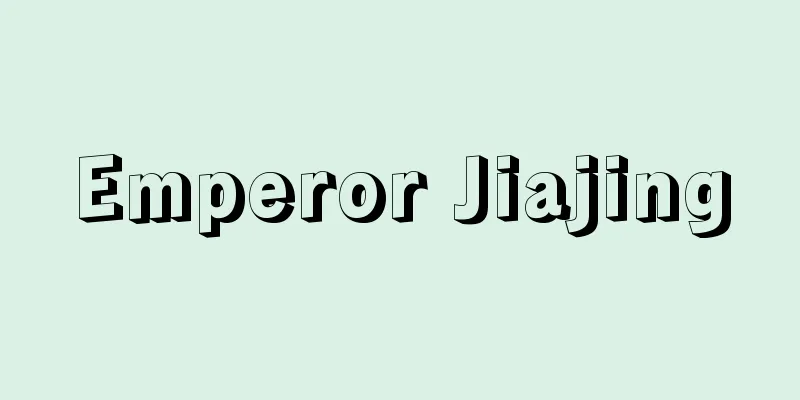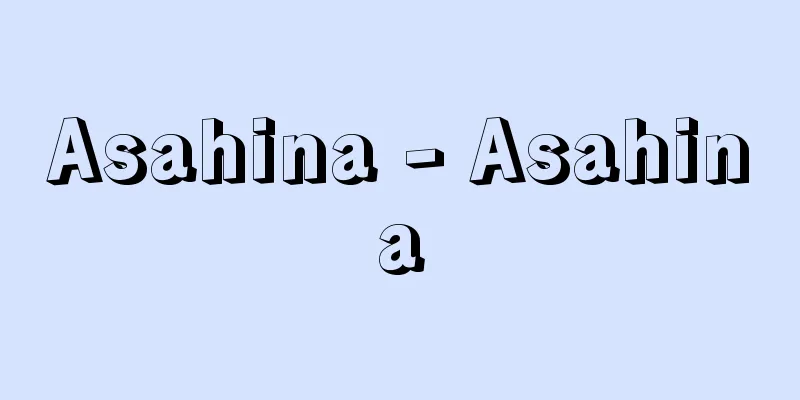Emperor Jiajing

|
The 11th emperor of the Ming Dynasty of China (reigned 1521-66). His given name was Zhu Hou. His temple name was Shizong, and his posthumous name was Emperor Shu. He was called Emperor Jiajing after the era name. He was the eldest son of the 9th emperor Hongzhi's younger brother, King Xingxian, but because his cousin, the 10th emperor Zhengde, had no heir, he suddenly became emperor at the age of 15. Immediately after his accession to the throne, a great debate broke out in the imperial court, known as the "Great Ceremony," over whether his uncle, Emperor Hongzhi, should be called Huangkao (father of the emperor), or his real father, King Xingxian, should be called Huangkao. Emperor Jiajing was adamant in favor of the latter view, and ultimately settled the matter by forcing the opposing prime minister Yang Tinghe and others to resign. In the very beginning of his reign, the emperor sought to reform the previous era's abuses, such as executing and exiling the extremely tyrannical eunuchs under Emperor Zhengde's rule. However, during the two and a half years of the "Great Ceremonies," he lost sight of the key points of national politics, gradually becoming obsessed with Taoism, squandering national funds on civil engineering works and prayers, and from 1542 he appointed Yan Song, a powerful minister who fawned over him, as prime minister and allowed him to indulge in his tyranny. On the other hand, during the reign of the emperor, external threats also became evident, as the Mongolian Tartary Altan Khan intensified his invasions in the north, to the point of surrounding the capital Beijing, and in the south, the Wako, an armed group of mainly Chinese with some Japanese, began to commit smuggling and plundering around 1520, mainly in the coastal areas of Jiangsu and Zhejiang. The movements of the "Northern Prisoners and Southern Wa" were all aimed at expanding trade, which was brought about by the development of commodity production and a monetary economy since the reign of Emperor Zhengde. As part of this economic change, large landholdings expanded, and in particular bureaucrats became large landowners, and their avoidance of paying taxes and forced labor gradually worsened the national finances. On the other hand, the people of cities and rural areas, who were the driving force behind economic development, also began to disobey the traditional social order. The reason why historians have described Emperor Jiajing as "just an average ruler" is because of the changes in society itself that could not be dealt with by the methods used in the first half of the Ming Dynasty. [Masao Mori] Source: Shogakukan Encyclopedia Nipponica About Encyclopedia Nipponica Information | Legend |
|
中国、明(みん)朝第11代皇帝(在位1521~66)。姓名は朱厚(しゅこうそう)。廟号(びょうごう)は世宗、諡(おくりな)は粛(しゅく)皇帝。年号にちなみ嘉靖帝とよばれる。第9代弘治(こうち)帝の弟興献王の長子であったが、いとこにあたる第10代正徳帝に嗣子(しし)がなかったため、15歳のとき急遽(きゅうきょ)皇帝位についた。即位直後、伯父にあたる弘治帝を皇考(皇帝の父)と称すべきか、実父の興献王を皇考と称すべきかで朝廷に「大礼の儀」といわれる大議論がおこり、嘉靖帝は後者の見解を持して譲らず、最終的には帝が反対派の宰相楊廷和(ようていわ)らを辞職させて決着をつけた。即位のごく初期には正徳帝治下で横暴を極めた宦官(かんがん)を処刑、追放するなど前代の弊政の改革を志した帝も、2年半の「大礼の儀」のなかで国政の要点を見失い、しだいに道教に熱中して土木工事や祈祷(きとう)に国費を乱費し、1542年からは自己にへつらう権臣厳嵩(げんすう)を宰相に登用してその専横をほしいままにさせた。他方、帝の治世は「北虜南倭(ほくりょなんわ)」と称されるように、北方ではモンゴルの韃靼(だったん)部アルタン・ハンが一時首都北京(ペキン)を包囲するほどの勢いで侵攻を激化させ、南方では江蘇(こうそ)・浙江(せっこう)の沿岸地域を中心に、1520年ごろから、中国人を主体とし一部日本人を交えた武装集団倭寇(わこう)の密貿易と略奪が繰り返されるなど、外患も顕著となった。「北虜南倭」の動きはいずれも貿易の拡大を求めたものであり、これを招いたのが正徳帝以来の商品生産、貨幣経済の発達であった。また、この経済変動の一環として大土地所有が伸張し、とくに官僚の大地主化が進んで、彼らによる租税、徭役(ようえき)の納入忌避がしだいに国家財政を悪化させた。他方、経済の発展を実際に担った都市や農村の民衆も、従来の社会秩序に従わなくなっていった。嘉靖帝が史家によって「しょせん並の君主」と評される背景には、明前半期の方法では対応しきれない社会そのものの変化があったのである。 [森 正夫] 出典 小学館 日本大百科全書(ニッポニカ)日本大百科全書(ニッポニカ)について 情報 | 凡例 |
<<: The Great Japanese Pirates of the Jiajing Period
Recommend
Imperator - Imperator Go
…The sister ship Olympic was used until 1935. Ger...
Chuncheon
A city in the western part of Gangwon Province, S...
Pressure
Pressure is the force (stress) that acts perpendi...
Leningrad State University of Technology AAZhdanova (English: Leningrad State University of Technology AAZhdanova)
…University of the Russian Federation. Founded in...
corpuscles
…Boyle, the founder of modern chemistry, did not ...
Meckenem, Israel van
[Born] Around 1450 [Died] 1503 German copperplate ...
Mooka cotton
Also written as Keka. Cotton fabric produced main...
Ocean Anniversary - Umi no Kinenbi
→Marine Day Source: Shogakukan Encyclopedia Nippo...
Large blue dragonfly - Large blue dragonfly
…There are about 200 species distributed in Asia,...
Eikosaku - Eikosaku
This is one of the tenancy practices that mainly ...
Jesu Haly
…Years of birth and death unknown. His Latin name...
Deductive inference
...an abbreviation for deductive inference (reaso...
Rubbing
...There are two methods for this. One is to plac...
Akaniaceae
...Because of their beautiful leathery leaves and...
turboshaft engine
The thrust of the ramjet engine is much greater t...









